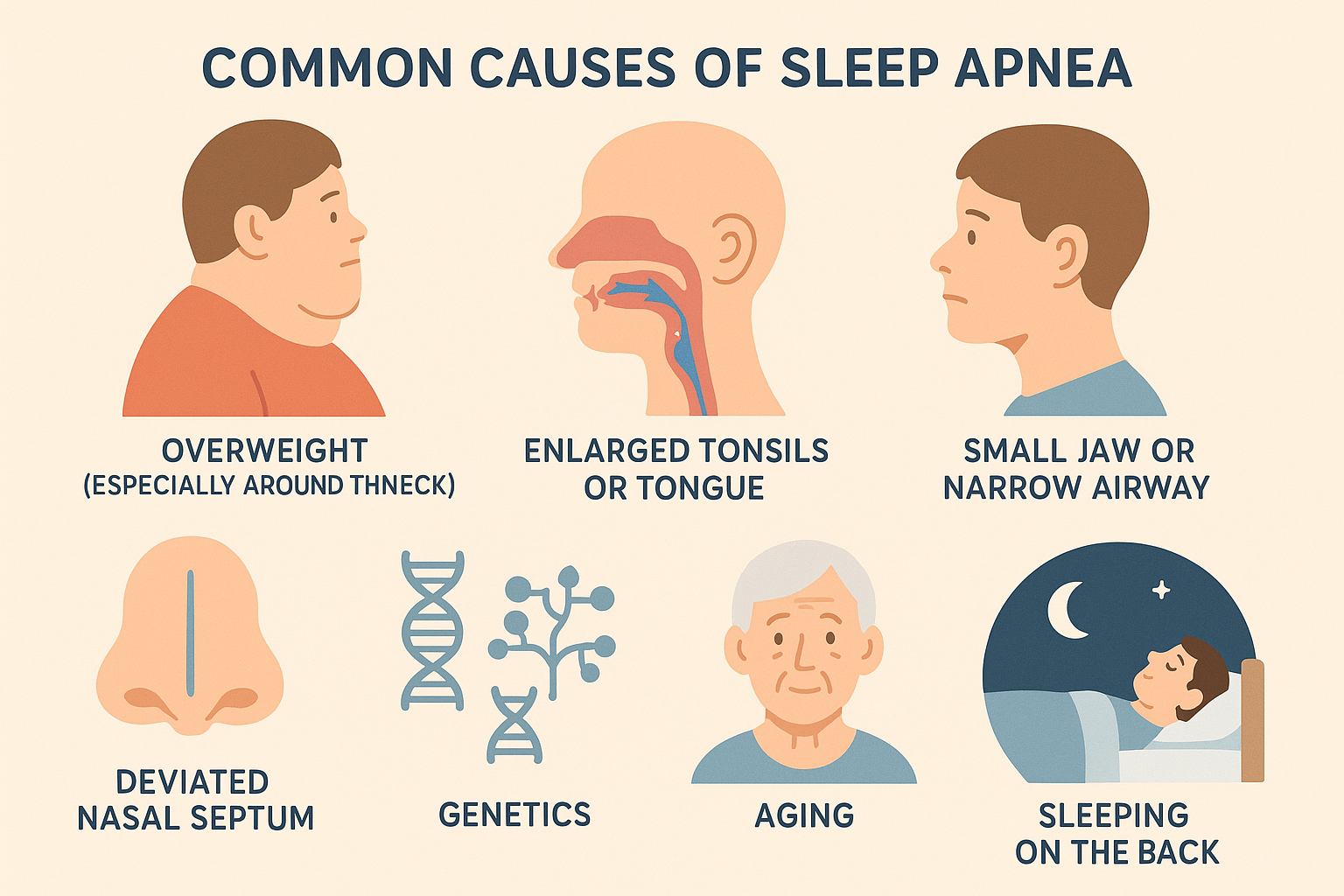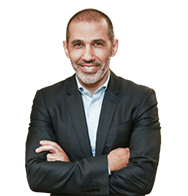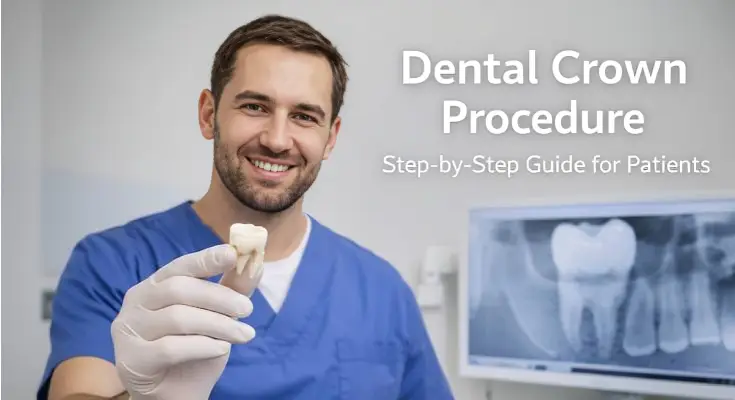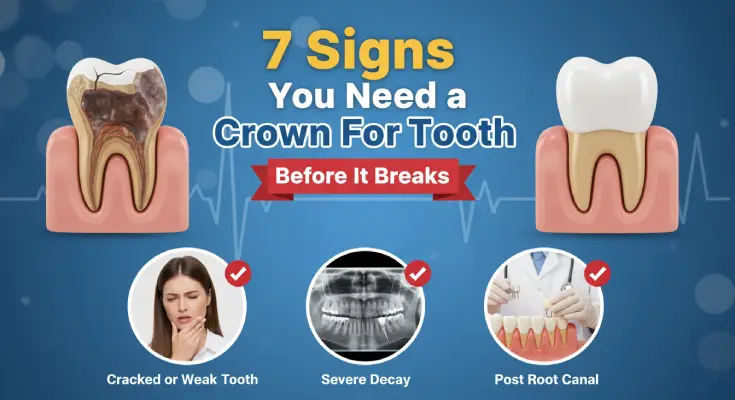Understanding Sleep Apnea: Symptoms, Causes & How to Treat It
What Is Sleep Apnea and Why Should You Care?
Let’s say you’re sleeping all night, but still waking up tired, foggy, and cranky. Or maybe your partner says you stop breathing while you sleep. That’s not just snoring; it could be sleep apnea, and it’s more common than you think.
At 65 Broadway Dental, we don’t just care about your smile, we care about your sleep, too. If you’re already exploring your smile options like Smile Design, it’s just as important to address issues like sleep apnea for overall wellness.
Sleep apnea is a condition where your breathing stops and starts over and over while you sleep. You might not notice it, but your body does. Every time your breathing stops, your brain panics a little and wakes you up, just enough to get air again.

The result? You’re never really getting deep, restful sleep. And over time, that can take a serious toll on your health, your energy, your mood, even your heart.
The good news? You don’t have to live with it forever. With the right diagnosis and a custom treatment plan from our team at 65 Broadway Dental, you can sleep better, feel better, and wake up refreshed again. Many patients also benefit from Nightlase Laser Snoring Treatment, a gentle laser therapy that helps reduce snoring and open your airway naturally.
What Are the Different Types of Sleep Apnea?
There are three types of sleep apnea, and they’re based on what’s causing the problem:
- Obstructive Sleep Apnea (OSA): This one’s the most common. It happens when the muscles in your throat relax and block your airway while you sleep. Basically, the air can’t get through.
- Central Sleep Apnea (CSA): Here, the problem isn’t the airway—it’s the brain. It forgets to tell your body to breathe while you’re asleep.
- Complex or Mixed Sleep Apnea: This is a mix of both. The airway gets blocked, and the brain doesn’t send the right signals.
No matter which kind you have, the results are the same: bad sleep, tired days, and long-term health risks if untreated.
Schedule an appointment today!
What Does Sleep Apnea Feel Like? (And What to Watch For)
Sleep apnea can be tricky. You’re asleep when it happens—so you don’t always know it’s going on. But your body gives you signs during the day.
Here are some common ones:
😴 At Night:
- Loud, rough snoring
- Gasping or choking while you sleep
- Waking up a lot (even if you don’t remember)
- Feeling restless all night
😴 At Night:
- Feeling exhausted, no matter how long you slept
- Falling asleep during meetings, watching TV, or while driving
- Morning headaches
- Brain fog, forgetfulness, or trouble focusing
- Feeling moody, down, or irritable
If you notice these symptoms, a simple Oral Exam can be a great first step to determine whether sleep apnea or another dental-related issue is affecting your overall health. In some cases, patients also benefit from therapeutic support like ComfortLase Photobiomodulation to help reduce inflammation and promote healing.
What Causes Sleep Apnea? (Hint: It’s Not Just Weight)
A lot of people think only overweight people get sleep apnea. That’s a common myth, but it’s not true. While being overweight can increase the chances of developing sleep apnea (especially obstructive sleep apnea), it’s far from the only cause. Many people who are thin, fit, or even young still experience this condition. That’s because sleep apnea is often related to your anatomy, genetics, or other health issues, not just your weight.

Here are some possible causes of sleep apnea:
- Extra weight, especially around the neck
- Large tonsils or tongue, which block the throat
- Small jaw or narrow airway
- Nasal problems (like a crooked septum)
- Family history
- Getting older
- Drinking alcohol before bed
- Sleeping flat on your back
Some children also struggle with sleep apnea, often due to enlarged tonsils. If that’s the case, a Specialist Consultation or Surgical Extraction might be recommended depending on the severity.
To assess anatomical blockages, your provider might also suggest a detailed CT Scan or 3D Scan to better understand your airway structure.
How Do Doctors Diagnose Sleep Apnea?
It usually starts with a conversation. Your doctor (or dentist) will ask about your sleep, your tiredness, and whether you snore or wake up feeling short of breath.
Then, you might need a sleep study.
There are two main options:
- In-clinic sleep study (Polysomnography): You sleep overnight at a sleep center with soft wires that track your breathing, heart rate, and brain waves.
- Home sleep test: A simpler version you can do in your own bed. It’s less detailed, but it can still help confirm OSA.
After the study, your doctor will count how many times you stop breathing each hour. That helps them figure out if your sleep apnea is mild, moderate, or severe, and how to treat it.
Schedule an appointment today!
How Is Sleep Apnea Treated? (And Is It Forever?)
Good news: Sleep apnea is treatable, and you don’t have to struggle with it forever.
The best treatment depends on what’s causing it and how bad it is.
💨 Common Treatments:
- CPAP machine: This small machine gives you a steady flow of air through a mask while you sleep. It keeps your airway open so you can breathe normally.
- Oral appliance (mouth guard): A custom-made device from your dentist that moves your jaw forward to keep your airway clear.
- Changing sleep positions: Sometimes, just sleeping on your side (instead of your back) can make a big difference.
- Lifestyle changes: Losing weight, quitting smoking, and cutting back on alcohol all help.
🛠️ Surgical Options:
If those don’t work, your doctor might suggest:
- Tonsil or adenoid removal (especially in kids)
- Nasal surgery (to improve airflow)
- Jaw surgery, sometimes involving Ridge Augmentation or Crown Lengthening, to help reshape facial structure and open airways
Treatment is all about making your sleep better, your body stronger, and your days brighter.
What Happens If You Don’t Treat It?
This part is serious.
Untreated sleep apnea can lead to big health problems, including:
- High blood pressure
- Heart disease
- Stroke
- Diabetes
- Memory loss
- Accidents caused by falling asleep while driving
Sleep apnea also worsens oral and gum health. In fact, it’s often linked to conditions like gum disease, which may require LANAP therapy for gum disease treatment, a laser-based, minimally invasive option to restore gum health.
Can You Prevent Sleep Apnea or Lower Your Risk?
Yes, and you don’t have to make huge changes overnight.
Here’s what helps:
- Stay active and maintain a healthy weight
- Sleep on your side
- Avoid alcohol and sedatives before bed
- Keeping your mouth and gums clean is just as important. Regular professional dental cleanings help reduce inflammation that can affect airway health and improve your overall oral wellness.
- Don’t ignore snoring or tiredness
Small steps add up. Even a little change can help you breathe and sleep better.- Stay active and maintain a healthy weight
When Should You See a Doctor or Dentist?
If you’re:
- Snoring loudly every night
- Waking up gasping or choking
- Always tired, no matter how long you sleep
- Having morning headaches or mood swings
👉 It’s time to talk to a sleep professional.Also, if your partner has noticed you stop breathing in your sleep, don’t ignore it. That’s a major red flag.
You don’t need to figure it out alone. Just start the conversation.
How Can You Feel Better with Sleep Apnea?
Once you start the right treatment for sleep apnea, you might be shocked at just how different you feel, in the best way.
If your plan involves a Night Guard or Oral Exam for sleep apnea screening, we’ll walk you through it gently. You’ll feel better rested, more focused, and finally back to your energetic self again.
Sleep apnea quietly steals your energy, focus, and mood every single night. But with proper care, your body finally gets the deep, uninterrupted sleep it’s been missing. And that changes everything.
Here’s what many patients notice once they start treatment:
- You’ll wake up feeling truly rested.
No more dragging yourself out of bed. You’ll feel like you actually slept, because you did. - You’ll think more clearly and stay focused.
That brain fog? Gone. You’ll find it easier to concentrate at work, remember little things, and get through your day without zoning out. - Your mood will improve.
When you’re sleeping well, you’re not as irritable or stressed. You might feel more relaxed, more patient, and more yourself. - Your body will feel stronger and healthier.
Quality sleep helps your heart, your immune system, your blood pressure—even your metabolism. You may even start to notice fewer headaches and better energy overall.
It’s not magic, but it sure feels like it. Sleep is one of the most powerful tools your body has to heal and recharge. And when you finally give it the care it needs? Everything starts to feel better.
FAQs
1. How do I know if I have sleep apnea or just snore a lot?
Great question! Snoring alone doesn’t always mean sleep apnea, but if you’re snoring loudly and also waking up gasping for air, feeling tired all day, or someone tells you that you stop breathing while sleeping, it’s a strong sign you may have sleep apnea. A sleep study is the best way to know for sure.
2. Can skinny people get sleep apnea, too?
Yes, absolutely! While weight can be a factor, anyone, even thin people or kids, can have sleep apnea. Sometimes it’s caused by big tonsils, a small jaw, or nasal issues that block your breathing while you sleep.
3. Is sleep apnea dangerous if I don’t treat it?
Yes, untreated sleep apnea can lead to serious health problems like high blood pressure, heart issues, and even accidents from being too sleepy during the day. It’s not something to ignore, but the good news is it’s very treatable!
4. What is the easiest way to treat sleep apnea?
For many people, a custom oral appliance (mouthguard) from your dentist is a simple and comfortable solution. Others may need a CPAP machine or small lifestyle changes like sleeping on their side or avoiding alcohol before bed. Your treatment depends on what’s causing your apnea and how severe it is.
5. Can a dentist really help with sleep apnea?
Yes! At 65 Broadway Dental, we’re trained to provide sleep apnea screenings and can create custom oral appliances that help keep your airway open while you sleep. It’s a simple and non-invasive option that works for many patients with mild to moderate sleep apnea.

Dr. Alexander Heifitz (Author)
Dr. Alexander Heifitz is the founder of 65 Broadway Dental in NYC, where he combines advanced dental expertise with a patient-first approach. He specializes in cosmetic and restorative treatments such as dental implants, veneers, Invisalign, and smile makeovers, helping New Yorkers achieve both oral health and confidence.
Booking An Appointment
Looking for a reliable dentist in Downtown NYC? Whether you need a routine cleaning, urgent care, or a full smile transformation — we’ve got you covered. We accept most PPO insurance plans and offer flexible scheduling.
+1 (212) 430-3888
Call for appointment
Walk-ins Welcome / Same-Day Appointments Available

Related Blogs

Dental Crown Procedure: Step-by-Step, What to Expect
Understand the dental crown procedure step by step, including preparation, temporary crowns, placement, and care for a strong tooth.
Read More
When Do You Need a Dental Crown? 7 Signs It’s Time
Same-Day Dental Crowns Explained: How CEREC Technology Creates Strong, Natural-Looking Crowns in Just One Visit Without Waiting Weeks
Read More